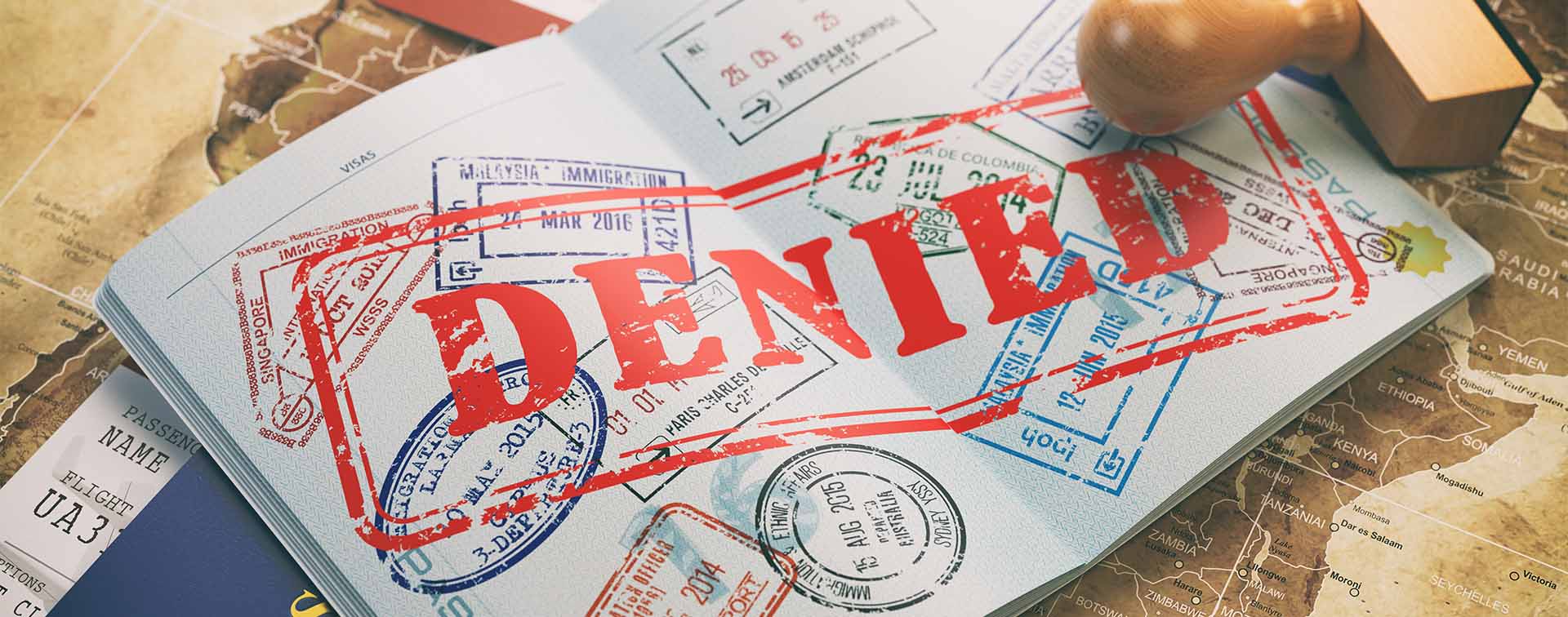
Prof. Mehari Taddele Maru is currently a Part-time Professor at the School of Transnational Governance, and Academic Coordinator of the Young African Leaders Programme (YALP) at the European University Institute, Florence, and an Adjunct Professor at Johns Hopkins University School of Advanced International Studies, Bologna, in Italy.
The number of applications for Europe’s Schengen Area visas has been declining over the years as rejection rates have surged. While restrictive for all applications, the European visa regime is notably more stringent towards African visa applicants than those from other regions. Addressing these issues would signal Europe's commitment to actively engage in business and strengthen trade relations between Africa and Europe.
African visa applicants face more severe restrictions compared to applicants from other regions, resulting in a disproportionately high rejection rate. In 2022, Africa topped the list of rejections with 30% or one in three of all processed applications being turned down, even though it had the lowest number of visa applications per capita. This was 12.5% higher than the global average. The rejection rates for African applicants for Schengen visas are generally 10% higher than the global average, three times higher than the highest rejection rate, and ten times higher than for US-Americans.
Globally, the absolute number of Schengen visa applications decreased from 16.7 million in 2014 to 7.6 million in 2022, representing a decline of almost 9 million applications. In other words, the global number of Schengen visa applications declined by nearly 54.7%. During the same period, the absolute number of Schengen visa applications in Africa decreased from 2.22 million in 2014 to 2.05 million in 2022, a decrease of almost 171,000 applications or 7.7%.

Nevertheless, despite the significant decline in both the absolute number and the percentage of Schengen visa applications, the rejection rate for Schengen visa applications increased significantly. Globally, the total rejection rate surged from 5% to 17.5% in 2022, marking an increase of 12.5%. In Africa, the rejection rate reached 30% over the same period, a 12% increase from the 18% rejection rate in 2014, and nearly twice the global average. About three in ten African Schengen visa applicants were rejected, compared to one in ten applicants worldwide.
Africa accounted for seven of the top 10 countries with the highest Schengen visa rejection rates in 2022: Algeria (45.8%), Guinea-Bissau (45.2%), Nigeria (45.1%), Ghana (43.6%), Senegal (41.6%), Guinea (40.6%), and Mali (39.9%). By contrast, only one in twenty-five applicants residing in the US, Canada, or the UK were rejected, and one in ten from Russia. As per illustration, Algerians face a rejection rate that is ten times greater than that of those applying in Canada, while Ghanaians are four times more likely to be rejected than Russians. Nigerians face almost three times the rejection rate of applicants in Turkey (15.5) and twice that of Iranians (23.7)
Notable exceptions are the Seychelles and Mauritius, which along with 61 countries in Latin America and Asia are exempt from the Schengen visa requirement. A few African countries like South Africa, Botswana, and Namibia face a relatively low rejection rate of less than 7%.
Visa applications for various purposes, including work, study, and tourism, are subjected to lengthy and cumbersome application processes. Rejections are very costly for applicants, particularly the nonrefundable fees, but also transport and other expenses.
Notably, access to Schengen visas corresponds to the economic and passport power of the applicant's country of nationality. The poorer the country of nationality, the higher the rejection rate. Many African countries have low ranking gross national income per capita, and also rank low on the Henley Passport Index, which measures the number of destinations a passport holder can enter without a visa. A lower ranking correlates with a high level of rejection for Schengen visa applicants.
Visa requirements within the continent add to the challenges encountered by African applicants. The Henley Passport Index reveals that the lower passport strength of many African nations, stemming from limited global visa access and restricted mobility opportunities within Africa, further compounds the challenges faced by African applicants. Consequently, passports often hinder rather than facilitate mobility for Africans.
Visa rejection is also being used as a condition for the return and readmission of illegal migrants in Europe. Essentially, it punishes African countries whose citizens are found to be illegally residing in Europe, and those with the lowest rate of return and readmission.
Officially, visa rejections are often attributed to doubts about applicants’ intention to leave the destination country before the visa expires. According to European states, most rejections are based on "reasonable doubts about the visa applicants’ intention to return home."
The possibility of illegal overstay alone cannot account for the significantly higher rejection rates among African applicants. In 2022, Malta, with an alarming 35.5% visa application rejection rate, only had 750 third-country nationals residing in the country without proper authorization. There is no evidence to suggest that a higher rejection rate leads to a decrease in irregular migration or visa overstays.
While factors such as per capita income, national economy, applicants' income levels, credibility of return, and passport strength partially account for visa rejection rates, they do not offer a comprehensive explanation for the disparities with other regions. Passport strength and income levels alone cannot fully justify the variations in rejection rates for African applicants, as evidenced by the comparatively lower rejection rates for countries like India and Turkey.
Despite justifications based on security or economic concerns, the European visa system demonstrates apparent bias against African applicants. This undermines relationships and mobility goals. Visa restrictions and refusals also hinder private sector involvement in trade and business partnerships with Africa.
The European Union must address the current discriminatory practices within its visa application process and work towards promoting fair and equal opportunities for legal pathways to mobility between Africa and Europe.
Henley & Partners assists international clients in obtaining residence and citizenship under the respective programs. Contact us to arrange an initial private consultation.

Have one of our qualified advisors contact you today.
We use cookies to give you the best possible experience. Click 'Accept all' to proceed as specified, or click 'Allow selection' to choose the types of cookies you will accept. For more information, please visit our Cookie Policy.